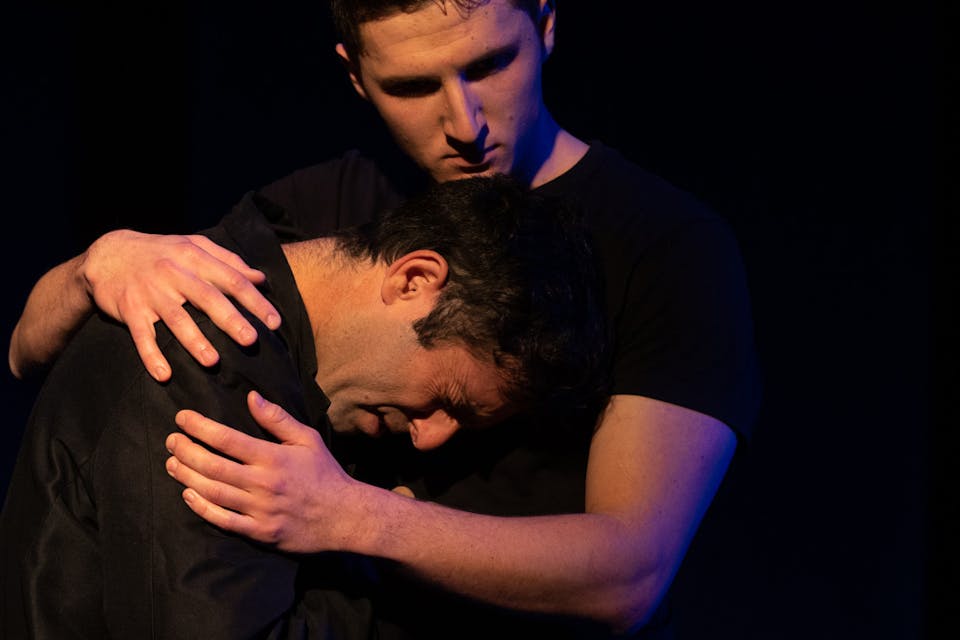
March 3, 2022
Tom Stoppard and Theodor Herzl in Jerusalem
Last month saw the first-ever production of Herzl's little-known play The New Ghetto in the country he brought into being. The performance was touched with the sublime.
This past February 14th marked the 116th anniversary of the publication of Theodor Herzl’s manifesto The Jewish State, which lay the groundwork for the modern Zionist movement and the state of Israel. That same evening a special event took place in the Jerusalem Theater: a performance of Herzl’s play The New Ghetto, written in 1894, just a few short weeks before he began composing The Jewish State. It is commonly understood that the turning point for Herzl—the moment he realized there was no escaping from anti-Semitism even in enlightened Western Europe—was the Dreyfus Affair that began in the fall of 1894. Yet The New Ghetto, written shortly beforehand, is proof that, as some scholars have argued, a proto-Zionist sensibility had already been roiling in Herzl’s mind.
Last month’s production was a historic privilege for those who attended it: it was the first time the play has ever been performed in Israel. (More on the nature of the performance in a moment.) The New Ghetto tells the story of Jacob Samuel, an assimilated, well-to-do Viennese Jewish lawyer who finds himself caught between the literal and figurative ghetto of the Jewish community and the non-Jewish world outside it. The play depicts events that follow Samuel’s wedding to Hermine Heilman, the daughter of a prominent Jewish businessman. Hermine chose to marry Samuel over Wasserstein, an uncouth stock trader who is obsessed with making money and thereby embodies the Jewish stereotypes so widespread in Western Europe at the time. Samuel, on the other hand, is an honorable man who is moved to respond to the suffering of others, even when his law practice suffers as a result. He seeks to earn the approval of his non-Jewish peers and to echo their aristocratic values in his own conduct. But they never grant him that approval, with one good friend Franz breaking off their friendship because it might hinder his nascent political career in an anti-Semitic, nationalist political party.
The play is full of such references to events that took place in the time of its writing, like the duels that were occasionally provoked against Jews by anti-Semitic Austrians. In one, Armand Mayer, a refined young Jewish officer in the French engineering corps, was killed by the Marquis de More, a far more experienced swordsman and founder of the Anti-Semitic League of France. Such events, shrouded in the veneer of nobility, were in fact brutal acts of anti-Semitic aggression. In The New Ghetto, Samuel is initially provoked into a duel by the craven Count von Schramm, only to ignominiously extricate himself by apologizing. That works once, but, by the end of the play, Samuel feels compelled to accept another duel, in which he dies. His words, among the final lines of the play, are prescient: “Jews, my brothers, you will only be allowed to live again when you . . .” At this point in Herzl’s final version Samuel trails off, leaving unspoken the words “learn to die” that had existed in an earlier draft (and that were restored in Jerusalem Theater production I saw).